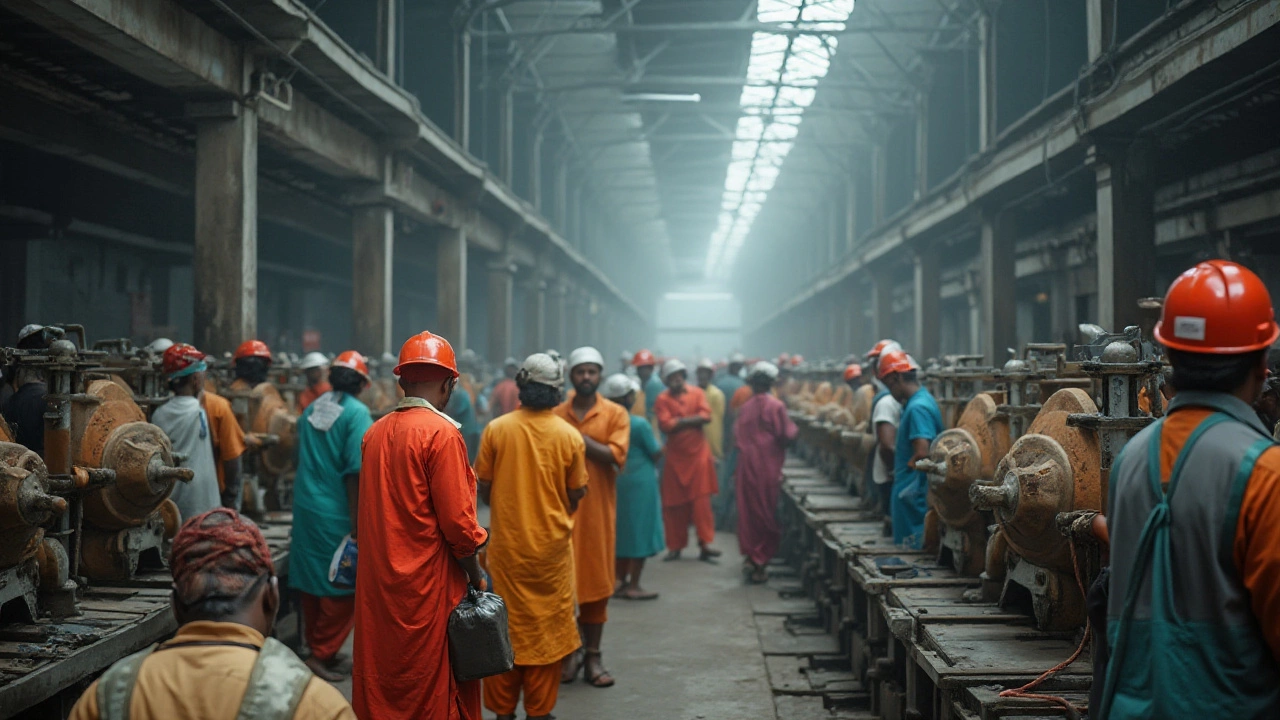Jobs in Indian Manufacturing: Your Quick Guide to Opportunities
India’s factories are hiring faster than ever. From auto plants in Maharashtra to textile mills in Gujarat, companies need people who can keep the line moving, design new products, and maintain the equipment. If you’re looking for a steady paycheck and a chance to grow, manufacturing jobs are worth a look.
High‑Demand Roles in Today’s Factories
Most factories need a mix of hands‑on and desk workers. Machine operators, quality inspectors, and maintenance technicians are the backbone of production. Engineers – especially in robotics and process improvement – earn top salaries because they help cut waste and boost output. Supply‑chain coordinators keep raw material flow smooth, while sales and marketing teams find buyers for the finished goods.
Because India is pushing for more “Make in India” projects, sectors like pharmaceuticals, electronics, and renewable‑energy equipment are expanding fast. That means more openings for lab technicians, PCB assemblers, and wind‑turbine installers. If you have a technical diploma or a certification in CNC programming, you’ll find many doors open.
How to Land a Manufacturing Job in India
First, polish your resume with numbers. Mention the machines you’ve run, the production targets you hit, or the downtime you reduced. Recruiters love concrete results. Second, use job portals that focus on industrial roles – sites like Naukri, Indeed, and the government’s employment exchange often list factory openings.
Networking still works. Attend local industry meet‑ups, trade shows, or skill‑development workshops. Talk to people who work in the plants you’re eyeing; a recommendation can move you to the top of the pile. Third, brush up on key skills. Basic computer literacy, knowledge of safety standards, and a grasp of lean‑manufacturing concepts make you stand out.
When you get an interview, be ready to talk about real problems you solved. Show that you understand the production line flow, can read technical drawings, and know how to keep equipment running safely. Ask the interviewer about training programs – many big firms sponsor up‑skilling courses for new hires.
Looking ahead, the government’s push for digital factories and green manufacturing will create new roles in automation, data analysis, and environmental compliance. Keeping an eye on those trends will help you stay ahead of the job market.
Bottom line: manufacturing jobs in India are plentiful, pay well, and offer clear paths for advancement. Focus on the right skills, showcase real results, and use both online and offline networks to get noticed. Your next career move could be just a factory floor away.

Why Local Manufacturing is a Game Changer for Economies
Local manufacturing plays a critical role in boosting economies by creating jobs, reducing dependency on imports, and fostering innovation. Government schemes around the world have been devised to support local industries, making them the backbone of economic rejuvenation. With strategic investments and favorable policies, countries can leverage local manufacturing to strengthen economic stability and promote sustainability. Highlighting the importance of these initiatives, we explore the manifold benefits that local manufacturing brings to the table.
